My t-day playlist: “Home for the Holidays” (1995)
23 November 2012
As of Wednesday morning — the morning before Thanksgiving — I had yet to visit the market. For those of you unfamiliar with this family- and food-oriented American holiday, let me explain that the shopping for food alongside other, crazed shoppers is only one part of the anxiety. Thanksgiving stresses people out because it brings families together.
All our baggage of years gone by. All the ways we’ve disappointed each other — and let’s be frank, the ways we sometimes don’t even like each other — or perhaps just the way we think our families are disappointed in us, which is the same thing. The fact that Home for the Holidays manages to package all that up into a warm film that gets better on re-viewing is a small miracle … and let me say that I’ve seen this movie at least ten times, I love it so much.
 This wasn’t Jodie Foster’s first directing job, but it was her last for more than 15 years (until she made last year’s The Beaver, a film I still haven’t seen) — perhaps because it received mixed reviews. I remain baffled by the large numbers of critics who haven’t rediscovered its virtues, for it’s truly one of those overlooked gems.
This wasn’t Jodie Foster’s first directing job, but it was her last for more than 15 years (until she made last year’s The Beaver, a film I still haven’t seen) — perhaps because it received mixed reviews. I remain baffled by the large numbers of critics who haven’t rediscovered its virtues, for it’s truly one of those overlooked gems.

Start with the cast. Holly Hunter is our protagonist, Claudia, a down-on-her-luck fine art restorer and single mother who has flown home to Baltimore to see her family for Thanksgiving. Everything is going wrong — from the fact that she’s getting a cold to having just lost her job to the disturbing fact that her teenage daughter (Claire Danes), who’s staying in Chicago for the holiday, has pronounced that she’s going to have sex with her boyfriend while mom’s away. Claudia makes a piteous call to her young brother, Tommy (Robert Downey, Jr.) begging him to come home too, and arrives in Baltimore to find that she has lost her winter coat somewhere along the way. No worries, because like clockwork, her mother (Anne Bancroft) has brought an extra, one of those awful, oversized, pink Michelin Man numbers that only moms seem to own.
You might think, at first, that Home for the Holidays might simply be about a bedraggled, 30-something woman surviving a holiday with her wacky family. Not that there’s anything wrong with the dysfunctional family narrative; it’s one of my favorites. But Foster and screenwriter W. D. Richter have no interest in writing simple screwball. Every single bit of this movie starts to feel real.
Take a small sequence of scenes at the airport. Claudia walks past the bank of public phones and overhears each one of the harried travelers having exasperated conversations with family members. When she gets into the car only to sit in a traffic jam with her chain-smoking, rambling mother, Claudia glances over at the next car to see a similarly middle-aged man looking desperately at her while listening to his parents in the front seat:
Claudia gives him a look over the top of her enormous coat to convey the identical emotion:
And then her mother leans over from the back seat and says, “I can see your roots, Claudia.”
Claudia is saved by the surprise appearance of brother Tommy in the middle of the night along with a handsome friend named Leo Fish (Dylan McDermott), adding depth to the story. Who is Leo, and why hasn’t Tommy’s longtime boyfriend come? Deeply unserious and an inveterate practical joker, Tommy offers no answers.
Maybe this sounds like a series of easy stereotypes, from wacky parents to gay brother. But the story keeps changing up, subverting your expectations. For example, when her mother phones a still-single acquaintance from high school, Russell (David Strathairn in a brilliant bit part) to “take a look at the boiler,” the ensuing conversation starts out awkward and becomes bittersweet:
Russell: I’m just lettin’ the guys have the day off, you know, so they can visit their families, since I’m all alone this year.
Tommy, whispering to Leo as they watch from the next room: This is the saddest sack in the universe.
Russell: Yeah, I don’t have anybody anymore, my brother and sister got canned and they left town, and then my parents went and died on me.
Claudia, softening to Russell’s situation: I’m so sorry. I had no idea.
Russell: Yeah, well, you know — it was a car wreck, last summer, drunk driver, cut right across the, uh, what was it, you know — meridian, and, pow! pow! Head on. So, y’know, I don’t have anybody anymore, nowhere to go today, no family or nothin’ …
Eventually he pauses and says, “You still look so beautiful, Claudia.” It’s a wonderful little scene, as she’s both flattered and ashamed of her behavior toward him and says, almost flirtatiously, “Oh, god, I do not.”
“Maybe next year will be better for you,” she offers at the end. “Yeah,” he says with affected lightness. “Or worse.” Finally he says, “You have a nice life, Claudia.”
That’s the way of this movie: it doesn’t let you laugh at human foolishness without poking you and pointing out the ways you’re implicated in it.
And so it continues through the arrival of sister Joanne (Cynthia Stevenson) and her self-described “normal” family, allowing the director to open up the complicated relationships amongst the siblings. These scenes are played as much for laughs as for the genuinely toxic moments amongst people who don’t like each other. “We don’t have to like each other, Jo,” Claudia tells her. “We’re family.”
But perhaps the one thing that always gets me about this film is its quiet little theme about the disconnect between memories and commemoration. Each of the characters have special moments, treasured memories that were never captured in photographs — tiny little moments that crystallized something perfect. Some regret not taking those photos, but for others the memory is all the sweeter that it is theirs alone.
And then, by the very end, as many of the harsh edges have gotten chipped and the characters have voiced things that needed to be said, the film shows us a few of those memories: a father watching his little girl stare fearlessly up at a plane taking off; a mother and daughter snorkeling with fish; a gay marriage on a beach in Massachusetts, surrounded only by friends.
Those layers upon layers of memories, with piles of Thanksgiving flavors and family fights on top … isn’t that what the holidays are all about? Take care and enjoy your weekend, friends.
“Bugsy Malone” and lost kids’ movies
26 December 2010
I’m not the type to cry about how children’s movies aren’t as good as they used to be — far from it, as we seem to be living in a golden age for terrific kids’ movies. But there’s something exceptional about Alan Parker’s Bugsy Malone (1976) that’s worth discussing. Last night our home-for-the-holidays family watched it again and I struck by its appeal to both adults and children – a rarity in the 70s, an era of corny Disney features like The Apple Dumpling Gang (1975) that, I’m guessing, don’t hold up all these years later. The difference, I think, is that the child actors in Bugsy Malone are pretending to be adults in a Prohibition-era world of gangsters, molls, torch singers and showgirls, and wannabe prizefighters. Because they inhabit their pretend-adult roles so seriously, the movie evokes a sweet melancholy for disappointments, lost chances, and broken dreams, moods discordant with other children’s films. In fact, I think it’s the film’s juxtaposition of its sometimes dark themes, its terrific child actors, and its joyous final song that rejects cynicism in favor of youthful hope that makes it so watchable. (Friends, it’s available in full on YouTube.)
 When I saw this at a relatively young age, I wanted to visit the set and play there. They drive kid-sized replicas of early autos that operate by bicycle pedal, it’s full of eminently singable song-and-dance numbers, and best of all, the plot pivots on a gang war over guns that shoot whipped cream. The acting isn’t always seamless, but the best characters are played by the transcendently good Jodie Foster and, of all people, a pre-Happy Days Scott Baio as Bugsy. Bugsy’s a scrapper – a good guy who’s a bit down on his luck but manages to get along. He flirts with all the girls, but he really takes a shine to the solemn-faced Blowsey Brown (Florrie Dugger), a would-be singer who carries a baseball bat in her suitcase. She shows up at Fat Sam’s speakeasy to get a job; Bugsy gets pulled into working for Fat Sam during the gang war; and their budding romance gets complicated by the worldly, wise-cracking Tallulah (Foster), a torch singer who vamps it up with the guests at the club.
When I saw this at a relatively young age, I wanted to visit the set and play there. They drive kid-sized replicas of early autos that operate by bicycle pedal, it’s full of eminently singable song-and-dance numbers, and best of all, the plot pivots on a gang war over guns that shoot whipped cream. The acting isn’t always seamless, but the best characters are played by the transcendently good Jodie Foster and, of all people, a pre-Happy Days Scott Baio as Bugsy. Bugsy’s a scrapper – a good guy who’s a bit down on his luck but manages to get along. He flirts with all the girls, but he really takes a shine to the solemn-faced Blowsey Brown (Florrie Dugger), a would-be singer who carries a baseball bat in her suitcase. She shows up at Fat Sam’s speakeasy to get a job; Bugsy gets pulled into working for Fat Sam during the gang war; and their budding romance gets complicated by the worldly, wise-cracking Tallulah (Foster), a torch singer who vamps it up with the guests at the club.
 What I find so remarkable about this is the prevailing sense of cynicism in the early parts of the film. I’m not sure I’ve ever seen a group of 12- and 13-year-olds voicing such quasi-noir skepticism about the world. When the club’s janitor hears again that he’ll have to wait till tomorrow to try out for a tap-dancing job, he resolutely picks up his tap shoes and sings a slow dirge:
What I find so remarkable about this is the prevailing sense of cynicism in the early parts of the film. I’m not sure I’ve ever seen a group of 12- and 13-year-olds voicing such quasi-noir skepticism about the world. When the club’s janitor hears again that he’ll have to wait till tomorrow to try out for a tap-dancing job, he resolutely picks up his tap shoes and sings a slow dirge:
Tomorrow
Tomorrow never comes
What kind of a fool
Do they take me for?
Tomorrow
A resting place for bums
A trap set in the slums
But I know the scoreI won’t take no for an answer
I was born to be a dancer now, Yeah!Tomorrow
Tomorrow, as they say
Another working day and another chore
Tomorrow
An awful price to pay
I gave up yesterday
But they still want more
Likewise, when Bugsy thinks he’s found a new boxer of extraordinary talent, he takes the poor guy to Cagey Joe’s gym to have him trained. Joe looks him up and down and begins a warning-off song, eventually joined by all the other boxers in the room:
So you wanna be a boxer
In the golden ring
Can you punch like a south-bound freight train
Tell me just one thingCan you move in a whirl like a humming bird’s wing
If you need to
Can you bob, can you weave
Can you fake, and deceive when you need to?Well, you might as well quit
If you haven’t got it.
I should mention that this is really a catchy song, with lots of quick cuts to boxers in training. But “you might as well quit / if you haven’t got it”? When have I ever heard that before in a kids’ movie?
 Now, no adult today will find the movie’s central plot about the growing arms race to be terribly remarkable — after all, the “splurge guns” at the center of the story shoot whipped cream — but as the film was made in 1976 it’s worth pondering whether it had the Cold War and the US/Soviet arms race on its mind. Splurge guns prove to be infinitely more “deadly” than earlier weapons (that is, throwing whipped-cream pies into people’s faces), and without them Fat Sam is losing his territory quickly. The film ends with an utter white-out battle in the speakasy, hitting everyone mercilessly in a way that at any other point would have signified death — in fact, it might have led to an even bleaker conclusion to a film that already has a lot of bleakness on its mind. But when a pie hits the piano player and he hits a couple of notes, the battle halts; he begins singing in a rueful way, “We coulda been anything that we wanted to be,” a song that grows into a promise to change, to make friends, to live, to love:
Now, no adult today will find the movie’s central plot about the growing arms race to be terribly remarkable — after all, the “splurge guns” at the center of the story shoot whipped cream — but as the film was made in 1976 it’s worth pondering whether it had the Cold War and the US/Soviet arms race on its mind. Splurge guns prove to be infinitely more “deadly” than earlier weapons (that is, throwing whipped-cream pies into people’s faces), and without them Fat Sam is losing his territory quickly. The film ends with an utter white-out battle in the speakasy, hitting everyone mercilessly in a way that at any other point would have signified death — in fact, it might have led to an even bleaker conclusion to a film that already has a lot of bleakness on its mind. But when a pie hits the piano player and he hits a couple of notes, the battle halts; he begins singing in a rueful way, “We coulda been anything that we wanted to be,” a song that grows into a promise to change, to make friends, to live, to love:
It’s been lost, hasn’t it — the sense that the world is precarious, and that we have to become better than we are to save it. It’s a mood I grew up with as a kid in the 70s, with children’s shows that advocated a social conscience. All the more reason to watch Bugsy Malone. Remember that Scott Baio was once a froggy-voiced kid with a sweet Brooklyn accent, a kid who could really act; remember that children’s films had something to say about politics; remember that 1970s message about children being the future. It’s a pleasure to remember.
Child actor
23 March 2010
Last night I watched Tarsem Singh’s “The Fall” on DVD and wished I’d seen it in the theater — not just because of his truly amazing visuals (and please, just for pleasure tick through a gallery of stills here), but because of the terrific Catinca Untaru, a 9-year-old Romanian actor who nails her part.
I’m generally not big on films about children, and if it weren’t for Untaru’s acting this one could have been treacly in its portrayal of an imaginative little girl listening to tall tales. She is the film, insofar as she expresses so well being transfixed by the tale told by a paralyzed, depressive fellow patient played by Lee Pace.
Her acting is unexpected enough that it’s full of tiny little delights. Her broken left arm is trussed in one of those ridiculous casts that cocks it up at shoulder level, yet she insists on carrying in that hand the cigar box where she keeps treasures she collects from her friends. When she wanders unchecked through the hospital grounds, she moves her tubby little legs like a real child — awkward, un-selfconscious, determined. There’s a great scene in which she steals wafers from the hospital’s chapel and expresses genuine confusion when Pace demands if she’s using them to save his soul. When she cries with despair, real tears stream down her cheeks; and when she lies to him, she sticks to the lie for what seem to be realistic reasons unique to children. [update: YouTube has removed those clips, but you can watch the trailer here.]
It’s to Pace’s credit that he lets her so perfectly express the viewer’s wide-eyed pleasure in the rambling tale. After all, it should have been his movie, after a series of lame TV parts that mostly demanded that he be memorably cute. But in letting Untaru be the utterly believable character — and turning himself into a caricature — Pace demonstrates a degree of actorly generosity that doubtless enhanced the little girl’s translucence.
A final note I haven’t quite figured out yet: The imdb.com mini-biography of her (which sounds like it was written by a family member) insists that Untaru had a remarkable ability throughout the film to distinguish herself from the part she played — an insistence that, oddly, reminded me of Scorsese’s description of Jodie Foster’s child prostitute in “Taxi Driver”: that she had a piercing understanding of the difference between reality and the part she played. Untaru may well have a similarly well-adjusted perspective. But the fact is you’d never guess it as you watch her emotions flit across her face in all her scenes. In a movie that should be memorable for its fantastic imagery — those shots of whirling dervishes, the view down onto the village of blue houses, the strange man who emerges from the belly of a tree — I can’t stop thinking about her very real little girl’s face as she listens to stories. I’m not sure why we need to hear that child actors are able to distinguish between reality and movie fantasy; because the one thing that potentially makes them so great onscreen is when they seem utterly real, and whatever artfulness they might possess as actors falls away.

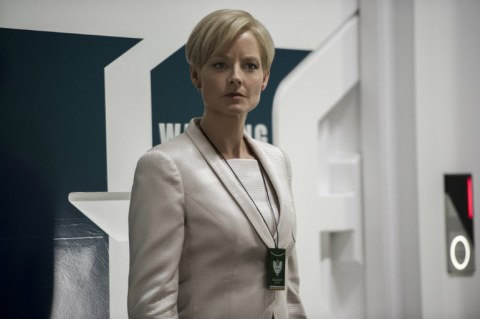

























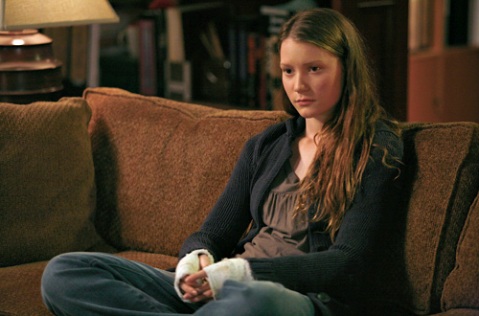
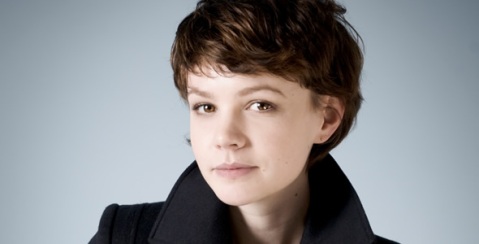
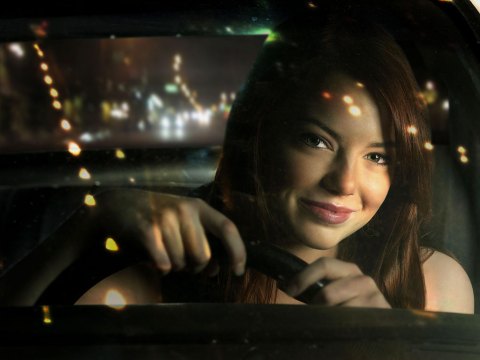
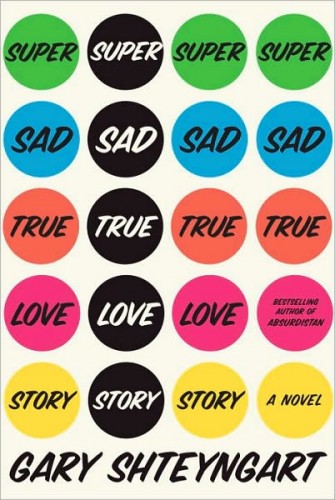
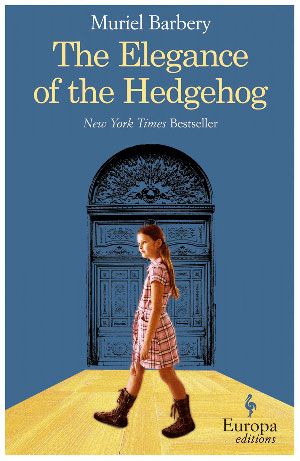 I’ve plunged myself into Muriel Barbery’s wonderful novel, The Elegance of the Hedgehog, which moves back and forth between the interior monologues of two brilliant women: the autodidact Renée, who hides behind her mask as an unkempt, sullen concierge in an elegant Paris apartment building; and Paloma, the precociously intelligent 12-year-old who lives upstairs and despises the pretentions of her family, teachers, and classmates. They seem to be on a path to discover one another — but I’m at the point in the novel when I’m so enjoying just listening to them think out loud that I’m not sure I care whether the narrative goes anywhere (Paloma has a diatribe about why grammar is about accessing the beauty of language that’s so wonderful I’m thinking of plagiarizing it for use in my classes).
I’ve plunged myself into Muriel Barbery’s wonderful novel, The Elegance of the Hedgehog, which moves back and forth between the interior monologues of two brilliant women: the autodidact Renée, who hides behind her mask as an unkempt, sullen concierge in an elegant Paris apartment building; and Paloma, the precociously intelligent 12-year-old who lives upstairs and despises the pretentions of her family, teachers, and classmates. They seem to be on a path to discover one another — but I’m at the point in the novel when I’m so enjoying just listening to them think out loud that I’m not sure I care whether the narrative goes anywhere (Paloma has a diatribe about why grammar is about accessing the beauty of language that’s so wonderful I’m thinking of plagiarizing it for use in my classes).




